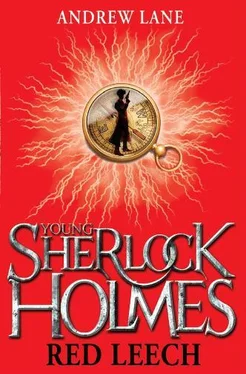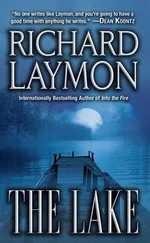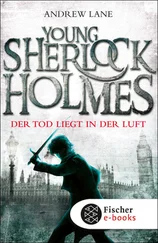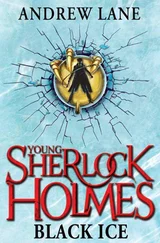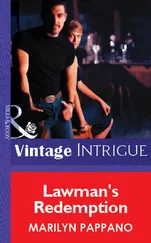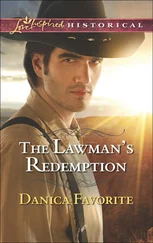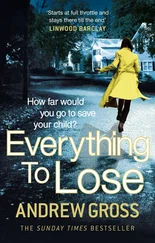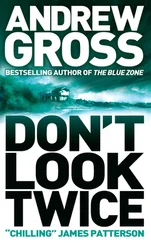“If you’d done that, likely as not you’d have been taken too,” Crowe pointed out. He moved across the cottage with surprising speed for such a large man and pulled her to him in a rough embrace. “Thank the Lord you’re safe.”
“But Matty!" Sherlock cried.
“We’ll get him back,” Mycroft promised, levering his bulk up from his chair. “It’s obvious that—"
Before he could complete the sentence there was a crashing of glass, and something heavy flew through the air from the shattered window and thudded against the floor. Crowe ran for the door and threw it open. From outside, Sherlock could hear hoofs thudding into the earth as someone raced away on horseback. Crowe cursed volubly. There were words in there that Sherlock had never even heard before, although he could guess at their meaning.
Sherlock bent to pick up the object that had been thrown in through the window. It was a large stone, about the size of two clenched fists held together. A length of string was tied around it, fastening a torn piece of paper to the stone’s surface.
Mycroft took the stone from Sherlock’s hands and put it on the table. Deftly, he took a knife from the table and sliced through the string. “Best to preserve the knots,” he said to Sherlock without turning his head. “They may tell us something about the man who tied them. Sailors, for instance, have a whole set of peculiar knots they use that have not found their way into the knowledge of the general populace. If you have a few days to yourself I really would commend to you a study of knots.”
Sliding the string to one side, presumably for later analysis, he unwrapped the paper from the stone and smoothed it out on the table.
“It’s a warning,” he said to Crowe. “We have your boy. Cease from your persecution of us. Do not attempt to follow us. If you leave us alone, he will be returned to you in three months — unharmed. If you do not leave us alone he will still be returned — in pieces, and over a period of some weeks. You have been warned.”’
Crowe was holding Virginia in his arms. “They obviously assume Matty is my son,” he said, “probably because they saw him and Ginnie on the same horse. They’ll realize their mistake soon enough when they hear him speak.”
“Not necessarily,” Mycroft pointed out. “They don’t know how long you’ve been here in England. In fact, they probably don’t even know you’re American. I think young Matthew will be safe enough for the moment. Now, what can we tell from the note?”
“Forget the note — we should go after them!" Sherlock cried.
“The boy is right,” Crowe rumbled. “There’s a time for analysis and a time for action. This is the latter.” He pushed Virginia away gently. “You stay here. I’m going after them.”
“And so am I,” Sherlock said forcefully. When Crowe opened his mouth to argue, he added, “Matty’s my friend, and I got him into this. And besides, two of us can cover more ground.”
Crowe glanced over at Mycroft, who must have nodded imperceptibly, because he said, “OK, young ’un — mount up. We ride now.”
Crowe headed for the door and Sherlock followed.
Outside, Crowe had already saddled one horse and was preparing a second for Sherlock. By the time Sherlock had mounted Crowe was already galloping away.
Sherlock pressed his heels into his horse’s flanks, and the horse began to gallop in pursuit.
The sun was heading towards the horizon, veiled by wispy clouds so that Sherlock could see it as a ball of red light. Crowe and his horse were racing ahead of him. He struggled to keep up. The thudding of his horse’s hoofs on the road transmitted itself up his spine, a constant vibration that made it hard to take a full breath.
How did Crowe know in which direction to go, he wondered. Presumably he’d made some quick calculation about the most likely road out of Farnham, if the men were heading to the coast. Southampton would be the obvious place for departure if they were going to America. But Crowe might have been wrong — the men might have been intending to embark at Liverpool, travelling up by train from London, which meant they would be leaving Farnham in an entirely different direction. For the first time, Sherlock realized that logical thought could only go so far, and that it produced a single answer only rarely. More often than not, logical thinking produced several possible answers, and you had to find another way to choose between them. You could call it intuition, or guesswork, but it wasn’t logic.
Cottages and houses flashed past too quickly to recognize. In the distance Sherlock could see a stone building on a hill: Farnham Castle, perhaps? The wind whistled past his ears, freezing them despite the heat from the day which had been absorbed by the earth and was coming back up from the ground. He thought he could hear the echo of his horse’s hoofs, but there was nothing for the sound to echo off. He glanced over his shoulder, and was amazed to see Virginia behind him, pressed close to Sandia’s neck. She flashed a grin at him. He grinned back. He should have known that there was no way she would have been kept away from the action. She really was unlike any other girl he’d ever met.
The three of them rode through a tiny hamlet of cottages clustered together. People scattered out of their way. Sherlock could hear raised voices behind them as they rode away. Ahead of them the road was empty until it curved away out of sight. How long would Crowe keep riding for before he acknowledged that they had gone the wrong way?
Virginia caught up with Sherlock. She glanced sideways, eyes almost glowing. Sherlock suspected she was enjoying herself, despite the urgency of their mission. She loved to ride, and this was a chance to ride like she’d never ridden before.
Ahead, past Amyus Crowe’s bulky body and wide white hat, which was somehow managing to stay on his head despite the speed at which the man was riding, Sherlock suddenly caught sight of a carriage. It was rocking back and forth as it pelted along the road, the wheels on one side leaving the road for a few moments before bouncing back as it went around a curve. Above it, Sherlock thought he could see the slender line of a whip flicking forward as the driver thrashed the horses to greater and greater efforts. Was Matty in the carriage? The driver was obviously making every effort he could to race along the road. If it wasn’t the Americans inside then it was a huge coincidence that someone else was so desperate to leave Farnham that they were willing to risk their lives doing it.
Sherlock pressed his horse to race faster, and it complied. The gap between Sherlock and Crowe narrowed, and he could see the carriage better. It was a four-wheeler, pulled by a team of two horses, and the springs were bouncing up and down as the wheels hit ruts, holes and bumps in the road.
Virginia drew alongside Sherlock’s left shoulder. He glanced across at her again. Her teeth were bared in what looked like a grin but which Sherlock suspected was more like a snarl.
Sherlock glanced right, at Virginia’s father. His gaze was fixed on the carriage ahead, and there was such volcanic force in his eyes that Sherlock was momentarily scared. He’d always thought of Crowe as being a gentleman to whom logic and the gathering of facts were more important than anything else, but Virginia had told him that Crowe had been a hunter of men, back in America, and often hadn’t brought them back alive. Looking at Crowe now, Sherlock could believe it. No force on earth could stop a man with that look in his eyes.
Crowe’s horse was foaming at the mouth, he was pushing it so hard. Tiny flecks of foam were caught by the wind and carried backwards, into the distance.
The road veered right, and the carriage ahead took the curve without slackening speed. The two wheels on the outside of the curve left the road and the carriage itself looked as if it was going to topple over and be dragged along the ground by the horses, but the men inside must have thrown their weight towards the left because it suddenly lurched sideways, and the wheels dropped to the ground.
Читать дальше
